In 2003, the then Minister of the Federal Capital Territory (FCT), Mallam Nasir El-Rufai, relocated all persons with disabilities (PWD) from the city centre to a community on the outskirts of Abuja, along the airport road known as Karon-Majigi, in a bid to rid the nation’s capital of street beggars.
The relocation was supposed to be temporary, pending when the permanent site being built for them is completed. However, this is 20 years later, and the dream of relocation seems bleak as they are still in Karon-Majigi but had to be relocated further inside the community, which was named Anguwan Guragu (translated as a community of disabled people). The community, which houses over 550 PWD from different parts of the country, was named after them.

The inhabitants of Anguwan Guragu, located behind the National Military Cemetery along the airport road, are almost living the fate of abandoned people. This is evident in the lack of basic amenities such as a good road, electricity, teachers in their school, and only two boreholes to serve the over 550 inhabitants of the community.
They live in dilapidated shacks, standing in rows and divided by rivulets of black, dirty water. They haven’t had power for four years since their transformer got bad. This has forced them to depend on the power supply from a neighbouring community called Tundun Munsura, who rations the power for them.
Also, the only access road leading to the community is in a deplorable state, especially for a first-timer, as it is very dusty, covered with red earth, and has accumulated debris by the sides. The road gets worse during the rainy season.
A recent visit by Persecondnews to the community exposed the several challenges these inhabitants are faced with due to discrimination, their condition, and a lack of financial capacity to cater to their daily needs.
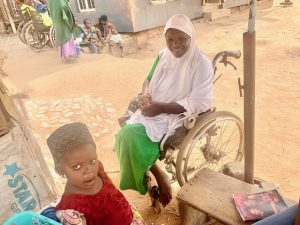
The difficult conditions under which the PWDs live have pushed many of them into begging to survive; however, so many of them have refused to allow their conditions to deter them as they are engaged in other things to earn money for a living. Some of them make braided wigs, sew clothes, make room fresheners, shoes, and bags, among others. This has reduced street begging in the community by 50 percent.
Sitting well-dressed in her wheelchair and beaming with smiles while attending to customers who came to patronize her food is 37-year-old Mrs. Saudatu Bashir, a mother of seven.
Saudatu is from Katsina State but was born and brought up in Makurdi, Benue State. In an exclusive interview with PerSecondNews, she narrated how she became physically challenged and relocated to Anguwan Guragu.
“It happened when I was seven years old. I was very ill one day and had a running temperature. My mother took me to a clinic for treatment, and after examining me, they administered an injection on me. They told my mother to take me home and that I would get better when I rested after an hour or two.
“I slept and woke up, and I felt a little better. I wanted to get up to go and meet my mother outside when I noticed my legs were numb and I couldn’t move them. I tried to stand up twice but fell. My mother came into the room when she heard me fall the second time. She took me back to the clinic immediately to show them what happened to me, but to our surprise, they drove us away and denied seeing us, let alone administering an injection to me.

“My mother became confused and was crying profusely when she took me back home. My mother and father started carrying me from one traditional healer to the next. My father didn’t go to report the clinic to the police because he was more concerned about me walking. It was one traditional healer in Aliade town who even made it possible for me to start crawling because I couldn’t move at all.
“In spite of my condition, I didn’t stop going to school. I was in class 1 when it happened. My siblings took turns carrying me on their backs to and from school every day, from class 1 to class 6, until I graduated.
“I lost my mother while I was in class 3, and my father also died when I was in class 6. Because of that, I couldn’t further my education,” Saudatu narrated.
She said that after primary school, she started helping her elder sister sell and gradually learned the trade before she got married.
She had three children with her first husband before he died.

“It was after I lost my first husband that I relocated to this place. When I came to this place with my children, I started doing mortar business. I will travel to Otukpo, in Benue State, to bring mortar for sale. The business was moving well, and I was making money, but I had to stop because tax forces were seriously disturbing me, and they were really intimidating and exploiting me because of my condition.
“I started selling food after I stopped the mortar business. I met my second husband in this community. He is a carpenter and is also handicapped. I have four children for him.
“When I was in Makurdi, and even when I moved to this place recently, I was crawling. I didn’t have a wheelchair. I crawled for 20 years before a committee donated this wheelchair to me in 2021 during Christmas.
“With this wheelchair, life has become much easier for me. My business and that of my husband are moving, and we are happy,” Saudatu added.
Like Saudatu, there are several other PWDs who are struggling to make a living from one business or another. Some of them learned a skill from the skill acquisition centre set up in the community by the former governor of Imo State, Mr. Rochas Okorocha, some years ago.
Also, a visit by Persecondnews to the only school in the community showed an empty school with all the classrooms and offices under lock and key. Findings revealed that the school lacked teachers, as most of the teachers posted to the school by the Universal Basic Education Board (UBEB) declined to go. The community has about 200 out-of-school children as a result of this.
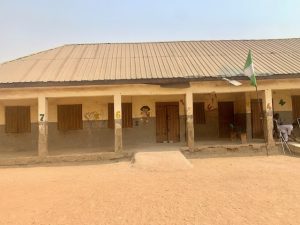
“An NGO built this school you’re seeing right now. When the NGO handed over the school to us, we wrote a letter to FCT UBEB through AMAC, requesting teachers. UBEB sent only three teachers: the headmaster and two supporters. The Parents Teachers Association was paying 10 more teachers that we employed.
“Because of our condition, most parents find it difficult to keep up with payments. All the teachers we hired have stopped coming because they could not cope with the expenses.
“When Femi Gbajabiamila was the Speaker, he used to come here from time to time and pick up about 30 children and pay their school fees from primary 1 to 6. He did that for four years; he tried. We need people like that.
“Most of the children have gone into wig making because they are not in school,” the Secretary of the PWD Karon-majigi FCT-Abuja, Mr. Mohammed Dantani, told Persecondnews.
Speaking further, Mr. Dantani called for the empowerment of the inhabitants of the community to prevent them from going back to begging.
“Our people need empowerment. Some of them have learned tailoring, computers, shoemaking, and welding. When they finished, we did not have anything to give them. At least we are supposed to support them and help them start something. By the time they stay for one year and don’t have anything to do, they will go back to begging.
“We need sewing machines, photocopying machines, computers, etc. for them to start,” he added.
The Secretary of PWD also lamented the discrimination they face from people.
“You can see the discrimination on the access road. You can see they repaired the road for the able people and stopped where the road leading to where we, the disabled people, started.
“When our women go to the primary healthcare centre here in Karonmajigi for treatment or to give birth, they discriminate against them. They don’t treat them well,” he added.
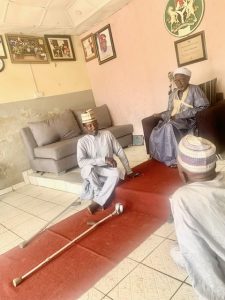
The Public Relations Officer of the PWD In the community, Mr. Sagir Ibrahim, in a chat with Persecondnews, pleaded with the Minister of FCT, Mr. Nyesome Wike, to come to their aid and include them in the development he has for the FCT.
“We want to beg the Minister, Mr. Wike, to please come to our rescue. We are putting our hope in him because we know how he really helped people with disabilities during his tenure as the governor of Rivers State.
“We are pleading with him to extend that kind gesture to us and involve our community in whatever development plan he has for FCT. We will forever remember him if he can do that for us,” Mr. Ibrahim said.














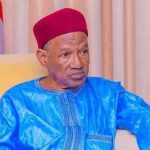





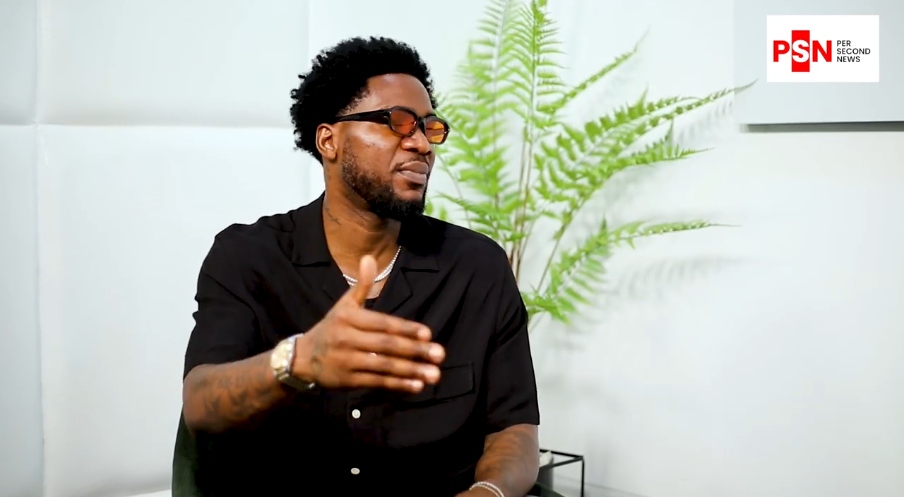
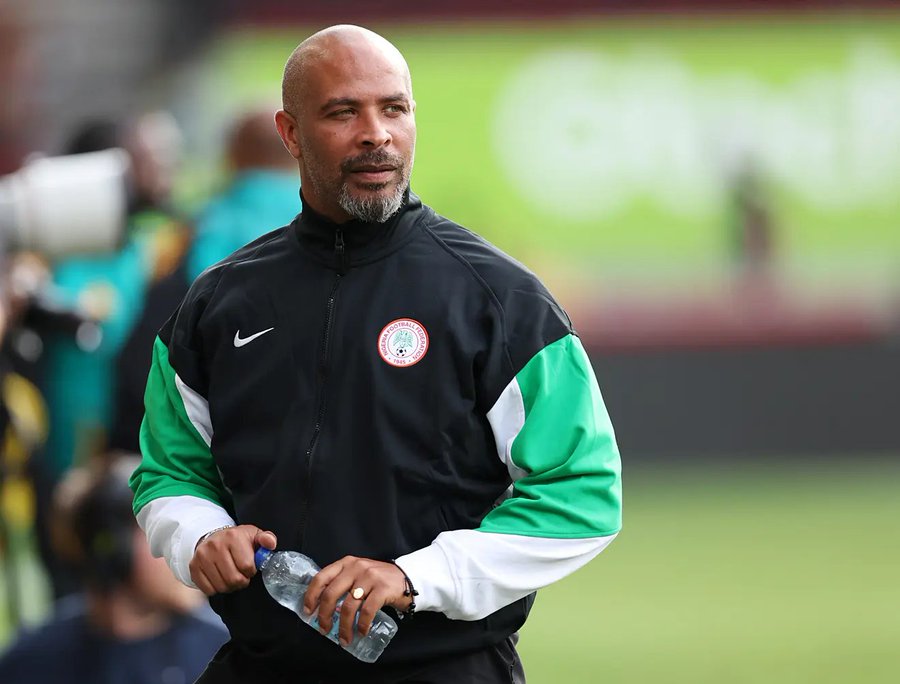
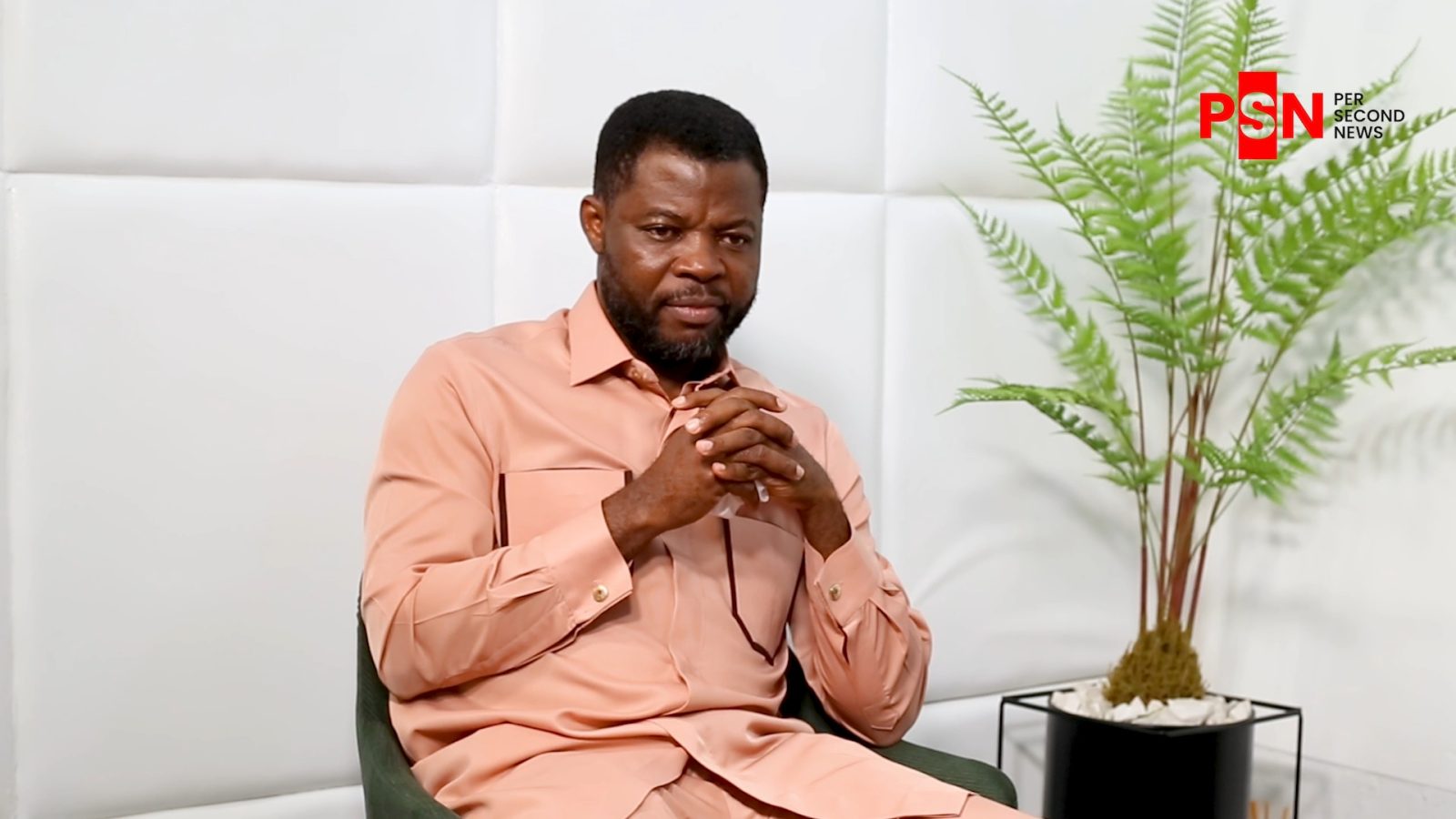

Leave a comment